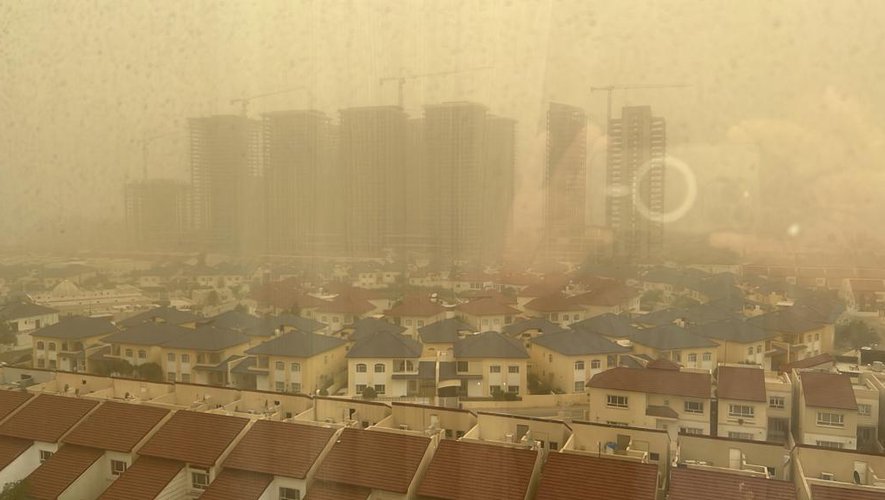Nine sandstorms in Iraq and three in Iran in five weeks, thousands of hospitalizations, Turkey blocking the Tigris and Euphrates… Climate change increases the risk of human and political drama.
Zoubeyr Mahy, the president of the Franco-Kurdish association of Occitanie, had never seen that. Just returned from Iraq, he looks at the photos of the autonomous region of Kurdistan on his cell phone. Difficult to see the many buildings under construction in Erbil, the Kurdish capital, as the ocher cloud is intense over the city.
“I lived until the age of 28 in Kurdistan. I had never experienced a sandstorm,” recalls the Albigensian entrepreneur, troubled by the drought that is hitting many countries around the world at the moment, and not just in the Middle East.
Four years after the release of the movie Dune, sandstorms were still science fiction in the 80s in Kurdistan and a rare phenomenon in the rest of the country. How is it then that, 35 years later, Iraq takes on the appearance of planet Arrakis every three to four days in the spring?
The storm that swept the country on May 23 and 24 before reaching Iran, Saudi Arabia and Kuwait was the ninth in five weeks, nine episodes of unprecedented magnitude that sent 10,000 people to hospital , forced the authorities to close the airports several times, and reduced economic life to nothing, to the great displeasure of Zoubeyr Mahy, who was stuck in his hotel for two days.
The difference with the 70s? The elimination of numerous palm groves in southern Iraq for the needs of the war against Iran. They offered a salutary screen to Baghdad and the cities of the north. Latent tensions with Ankara too. Water tower of the Middle East, Turkey began in 1989 the construction of 21 dams on the Tigris and the Euphrates, two rivers which have seen their natural flow automatically reduced. But the situation worsened after 2015 and the breakdown of a relative peace process with the Kurds, its immediate neighbors to the north of Iraq and Syria.
On January 24, Turkey reduced the flow of the Euphrates from 700 to 250m3/s
For Ankara, water management has become a weapon, as farmers in Rojava were able to realize on January 24, 2022. The flow of the Euphrates suddenly fell from 700 to 250 m3/s and it hasn’t increased since. With drought and lack of irrigation, yields are expected to be at their lowest for 50 years in Syrian Kurdistan where wheat harvests began on May 25.
Same thing in Iraq where « desertification affects 39% » of the total area of the country, according to President Barham Saleh. Neriman Talib, a Kurdish journalist, evokes 75 sandstorms expected on Kurdistan in 2022, thus taking up a figure put forward by climatologists who predict « 272 days of dust » per year over the whole country by 2040 and 300 per year from 2050.
Among the measures recommended to combat this phenomenon, the authorities cite the creation of green belts “which act as windbreaks” around towns bathed in low rainfall. A recommendation that could also apply to the Syrian capital which receives only 200 mm of rain per year. But do these two countries have the means?
The fear of seeing millions of climate refugees knocking on the door of temperate countries should lead the international community to take a close interest in the subject. A real sharing of water (more than of oil) is not only the key to a lasting peace in the Near and Middle East, it is also the sine qua non condition for the survival of the planet.

